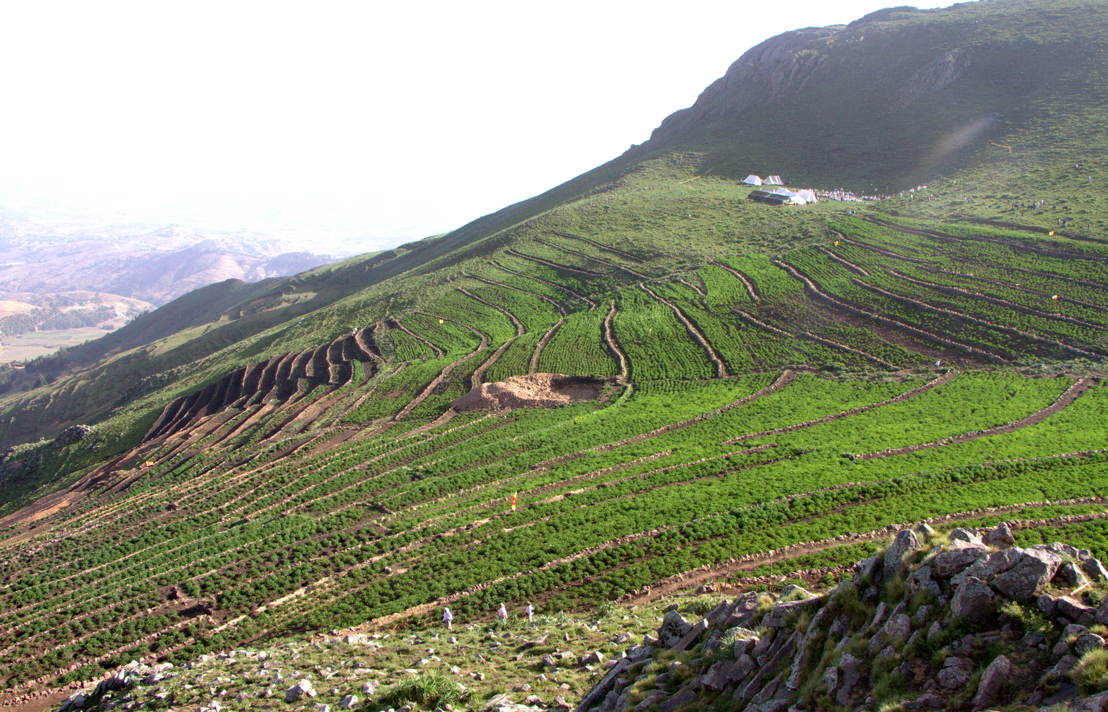Healthy soil is the foundation of sustainable agriculture, playing a vital role in supporting plant production, preserving water quality, safeguarding human health, and mitigating climate change.
The stark reality that one-third of soil worldwide is degraded, due to low organic carbon levels, pesticide contamination, and indiscriminate chemical fertilizer use adversely affecting soil microbiomes, presents a global crisis.
Against this backdrop, the Africa Union (AU) will convene the Africa Fertilizer and Soil Health (AFSH) Summit from 7-9 May 2024 in Nairobi, Kenya, to raise awareness and discuss solutions to Africa’s decades-long decline in farmland soil quality. A focal point of this year’s Summit is the AU’s intention to endorse a groundbreaking 10-year Fertilizer and Soil Health Action Plan and Soils Initiative for Africa.
In alignment with this thrust, the International Crops Research Institute for the Semi-Arid Tropics (ICRISAT) and The Nature Conservancy (TNC) will convene a pivotal side event focused on soil health within the context of multifunctional landscapes and climate change.
“The side event aims to foster an inclusive dialogue on managing soil health across diverse landscapes and changing climates, with a focus on optimizing soil health planning, implementation, monitoring, and ensuring the efficacy of policy and regulatory frameworks,” shared Dr Rebbie Harawa, Director of ICRISAT’s Africa Program and Event Moderator.
Director General of ICRISAT, Dr Jacqueline d’Arros Hughes, underscored the timeliness of the event, noting the global urgency to implement soil restoration initiatives.
“As we unite to address the pressing issues of sustainable land use and climate change, it is imperative that we deepen our understanding of soil management practices, recognizing their role in nurturing resilient socio-economic landscapes,” urged Dr Hughes.
Agriculture Director for Africa at The Nature Conservancy, Michael Misiko, echoed these sentiments, emphasizing the vital link between ecosystem health and agricultural methods and advocating for the integration of environmental conservation into agricultural development for sustainable resource management.
‘‘At this year’s Africa Fertilizer and Soil Health Summit, our partnership with ICRISAT is pivotal in promoting strategies that enhance soil health through ecosystem-based management. These practices are crucial for mitigating climate change impacts and ensuring that agriculture contributes positively to environmental health and community well-being,” said Misiko.
Recent studies conducted by ICRISAT highlight the importance of sustainable land management practices in nurturing soil health and bolstering ecosystem resilience. Notable examples include Landscape-based Nutrient Application in Wheat and Teff Mixed Farming Systems of Ethiopia: Farmer and Extension Agent Demand-Driven Approach, which addresses the critical need for adapting fertilizer use in smallholder agroecosystems to achieve sustainable development goals; and Dynamics of Soil Quality in a Conserved Landscape in the Highland Subhumid Ecosystem, Northwestern Ethiopia, which evaluates the efficacy of soil and water conservation practices in enhancing soil quality dynamics.
“These findings highlight the transformative potential of soil health management in fostering resilient landscapes and mitigating the impacts of climate change. By prioritizing integrated approaches and leveraging local insights, we can chart a sustainable path forward for agricultural development,” stated Dr ML Jat, Global Research Program Director Resilient Farm and Food Systems at ICRISAT.
Expected outcomes from the ICRISAT-TNC side event include:
- Highlighting the importance of collective action and collaboration in addressing soil health issues in multifunctional landscapes and climate change challenges and in harmonizing the different and conflicting disciplinary perspectives;
- Defining and framing integrated and optimized soil health management strategies and knowledge management for multifunctional landscapes and climate change scenarios;
- Exploring benchmarks for standardized soil health monitoring frameworks and metrics for diverse landscapes; and
- Offering an outlook of impactful and prioritized action areas, opportunities of R&D focus areas, and policy frameworks.










